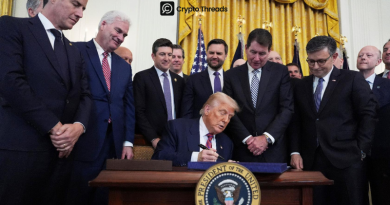Vietnam Moves to Regulate Digital Assets with New Framework
In a recent development, the Vietnamese government issued Resolution No. 27/NQ-CP, mandating the Ministry of Finance to lead the formulation of legal regulations concerning digital assets, including virtual assets and cryptocurrencies. This directive underscores the urgency attributed to the regulation of digital assets within the country’s legislative agenda.
Concurrently, the Ministry of Planning and Investment is soliciting feedback on a draft resolution aimed at establishing a Regional and International Financial Centre in Vietnam. This proposal includes a controlled testing (sandbox) policy for fintech business models, encompassing crypto assets and cryptocurrencies.
Additionally, the Ministry of Information and Communications has introduced a draft Digital Technology Industry Law, which, for the first time, defines digital assets as a category of digital technology products.
Vietnam’s Position in the Global Digital Asset Landscape
Vietnam has emerged as a significant player in the global digital asset market. According to a 2024 report by blockchain data platform Chainalysis, Vietnam ranked fifth worldwide in terms of interest in digital assets, third in the use of international trading platforms, and sixth in trading volume on decentralized platforms.
Industry experts emphasize the critical need for a transparent legal framework to safeguard users and stimulate economic growth. Tran Huyen Dinh, Chairman of the Digital Assets – Fintech Committee under the Vietnam Blockchain Association, highlighted that implementing a personal income tax rate of 0.1% on digital asset transactions could generate over $800 million in tax revenue annually.
Legal experts, such as Pham Ba Do, Director of SJKLAW Law Firm, argue that the lack of comprehensive regulations for virtual assets and cryptocurrencies creates an environment conducive to fraudulent activities.
In short, Vietnam’s proactive steps toward developing a legal framework for digital assets reflect a strategic effort to integrate digital technologies into the national economy while mitigating associated risks. By establishing clear regulations, the government aims to protect investors, enhance market transparency, and capitalize on the economic potential of the digital asset sector.



